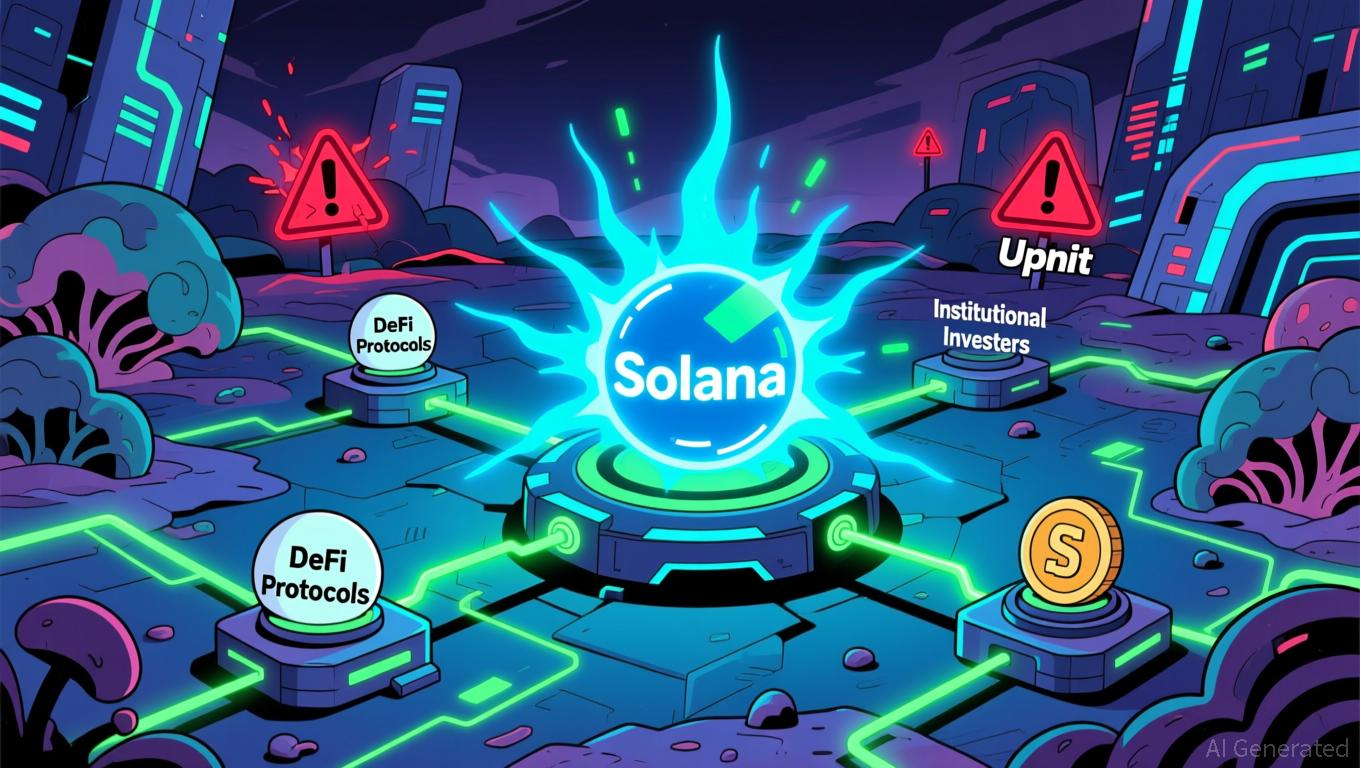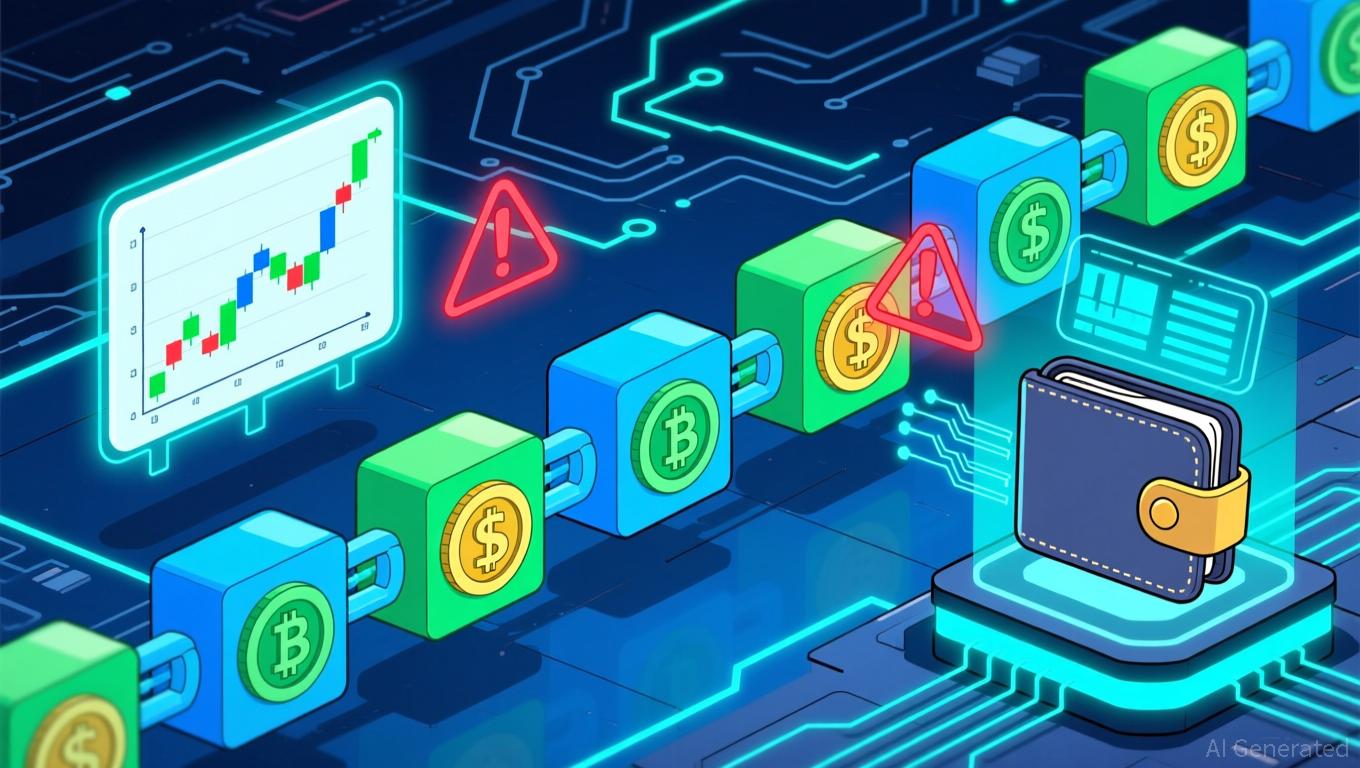Infura’s Decentralized Network Handles 13 Billion Requests
- DIN processes 13 billion requests, impacting Ethereum and Bitcoin.
- Economic guarantees with EigenLayer slashing.
- Introduction of multi-provider marketplace model.
Infura’s Decentralized Infrastructure Network (DIN) efficiently handles approximately 13 billion requests monthly, signaling rapid adoption. The system leverages a multi-provider model with EigenLayer to ensure accountability through economic guarantees, impacting Ethereum and Bitcoin integrations.
Infura’s Decentralized Infrastructure Network rollout is pivotal for distributed blockchain networks, enhancing security and reliability. It represents a shift towards decentralized infrastructure and impacts developers and projects dependent on Infura, MetaMask, and connected services.
Infura’s DIN leverages multiple node providers, ensuring economic security through EigenLayer slashing. Key players include Infura, MetaMask, and external node operators, adopting a decentralized model. This approach shifts the focus towards a multi-provider marketplace, enhancing infrastructure resilience.
**Tom Hay, Head of Product, Infura,** stated, “By leaning on Ethereum’s economic security through EigenLayer, we continue to build on DIN’s steady progress, creating a web3 permissionless marketplace for infrastructure services.”
The processing of 13 billion requests marks a shift in blockchain infrastructure reliability especially for Ethereum and Bitcoin integrations . This development promises enhanced uptime for decentralized applications and services dependent on Infura’s infrastructure.
This advancement reflects growing adoption in decentralized blockchain services. The entrance of Bitcoin into DIN-supported assets signifies a broader extension of services, enabled by partnerships like Hemi. Affected markets may see increased use cases and Dapp efficiencies.
Analysts predict increased efficiency and competition among node providers. Regulatory discussions are developing regarding decentralized infrastructure, echoing DIN’s alignment with resilience and redundant network preferences.
DIN’s shift from centralized models introduces financial accountability. Stakeholders see potential cascading effects on market decentralization and service reliability, with attention on regulatory reactions and ecosystem adoption.
Explore Infura’s Early Access Program for Decentralized Network
Disclaimer: The content of this article solely reflects the author's opinion and does not represent the platform in any capacity. This article is not intended to serve as a reference for making investment decisions.
You may also like
Privacy Altcoins Surge While Crypto Markets Decline
In Brief Cryptocurrency markets faced a major downturn in recent weeks. Privacy altcoins like Zcash rise amidst stricter regulation concerns. Upcoming regulations pose liquidity risks for privacy-focused cryptocurrencies.

Solana News Today: Institutions Remain Confident in Solana Amid Security Concerns and Volatile Prices
- Solana's on-chain trading volume now exceeds centralized exchanges, driven by $510M in ETF inflows and institutional adoption of DeFi protocols. - Price volatility and security breaches, including Upbit's $36.8M Solana-based theft, highlight risks despite $3B+ in corporate treasury holdings. - Institutional capital continues to flow into Solana's ecosystem, with DWF Labs committing $75M to scalable DeFi infrastructure amid TVL recovery to $120B. - Forward Industries reports $668M unrealized losses as Sol

XRP News Today: XRP ETFs See Rapid Growth, Price Remains Flat—Will Increased Inflows Overcome Technical Barriers?
- XRP ETFs saw $164M inflows on Nov. 24, 2025, with Grayscale and Franklin Templeton launching new products amid rising institutional interest. - Price rebounded to $2.20 but remains range-bound below key technical levels, forming descending patterns despite ETF-driven liquidity gains. - Ripple's RLUSD stablecoin surged 56% in 30-day volume to $3.5B, now third-largest GENIUS Act-compliant stablecoin after USDC and PYUSD. - Analysts predict $5.05 by 2025 and $26.50 by 2030, but XRP's 16.95% drop from 30-day

SEC Considers Blockchain Stock Advancements as Concerns Over Conventional Market Stability Persist
- SEC plans to discuss tokenized stock regulations with major firms like Coinbase and BlackRock , aiming to modernize securities rules for blockchain-based finance. - Proposed "innovation exemption" seeks to fast-track crypto products but risks destabilizing traditional markets by creating valuation gaps and eroding investor protections. - WFE warns tokenized shares could disrupt market structure, while Nasdaq proposes unified order books with shared CUSIP identifiers to align with existing systems. - Regu
